
Early Intervention Success
Tobie and Rachelle Needels had a beautiful four-year-old daughter named Makenna when they found out that their family would grow. Pregnant with their second child, they were excited to soon be a party of four.
Rachelle said her pregnancy was uneventful. They did the pregnancy-screening test and she appeared to be a healthy baby. At thirty-five weeks though, their doctor became concerned because she was measuring small so the decision was made to induce Rachelle. When baby number two was born, she was as precious as their first, but there were complications. Mia entered this world at four pounds one ounce, so her weight was a worry as well as her feeding and breathing. She also had a heart murmur. The Needels’ new baby girl spent 13 days in the Neonatal Intensive Care Unit.
As the months continued, she remained small and her heart murmur was still present causing their family physician some concern. He suggested they take Mia to a cardiologist. Mia has pulmonary valve stenosis and will always have heart concerns, but they felt that the initial worries were under control. Despite jumping that hurdle, some things still just didn’t seem right. The cardiologist thought it would be a good idea to do some genetic testing which came back showing no complications. Not satisfied, the team at Nationwide Children’s Hospital asked the family to endure one more test. The test was checking for Williams Syndrome. The results were positive and at 15 months old, Mia was officially diagnosed.
Williams syndrome (WS) is rare, affecting 1 in 10,000 people worldwide and an estimated 20,000 people in the United States. It is known to occur equally in both males and females and in every culture.
The syndrome is a genetic condition that is present at birth and can affect anyone. It is characterized by medical problems including cardiovascular disease, developmental delays, and learning challenges. Children with Williams syndrome tend to be social, friendly, and endearing.
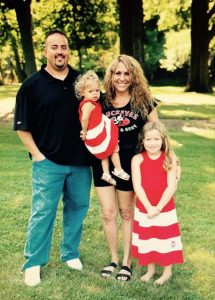
Mia shows all of these traits and conditions. Mia’s first year was exhausting for Rachelle and Tobie. Along with all of the early complications, Mia also had colic for her first 14 months.
“Everything was extremely challenging during that time. Feeding, sleeping, bathing … everything. Then, all of a sudden, she was the happiest girl. That happy girl gets me through all of the challenges that I know are still to come,” Rachelle said.
Rachelle, Tobie, and Makenna have tackled the challenges one at a time with a great attitude and much support from Marion County Early Invention (formally Help Me Grow) and Marion County Board of Developmental Disabilities (MCBDD).
“I didn’t know where to begin to help Mia thrive, but once I got connected with Marion County Early Invention, I felt like I had great people in place to help us succeed – and we have reached some great milestones,” Rachelle said.
Lori Stidham, early intervention service coordinator at Marion County Early Invention explains the process that the Needels family went through to get started. “It starts with an evaluation that Marion County Early Invention and Marion County Board of DD do together in the home. We go over the scores, the options, and create a service plan that includes goals that the family wants to focus on. The Needels family choose to focus on two strategies for Mia – walking and language development.”
Mia began intense physical (PT) and occupational (OT) therapy to reach her first goal of walking. Mia also learned how to stack blocks, string beads, and use utensils to eat during her sessions. The Needels feel like many great strides were made during PT and OT therapy. It took 16 months of PT and 10 months of OT on a weekly basis to reach her goal, but she is now walking independently, six months shy of her third birthday.
Lori and Rachelle both recalled the event with a shaky voice and much emotion. “When she took those first steps, it made the hard work all worthwhile,” Needels said.
“There wasn’t a dry eye in the room when Mia finally walked for the first time,” Stidham echoed.
With one goal checked off, the team has moved on to speech therapy. Stidham expresses the need for the community to support the County Board and the services they offer.
“It used to be easy to get speech therapy locally. But as levies have failed for Marion County Board of DD, they have lost valuable services such as therapies of all kind. Now, we rely on private organizations and the waiting lists are long. Getting services as soon as possible for our kiddos is critical to their success,” she explains.
Angie Meade, Early Intervention specialist at the Marion County Board of Developmental Disabilities agrees that the earlier families get started on services, the better.
“We offer services from birth to three years of age for Early Intervention through the County Board. The two most critical components of success for us are getting started as quickly as possible with services and having a supportive family unit that will also work with the child,” Meade said. “Mia definitely had both of these things working in her favor,” she added.
Meade goes on to explain that the role of Early Intervention is to work with the parents to achieve the goals they set for their child. She also joyfully talked about Mia reaching the milestone of walking and spoke positively of the progress she is making with speech therapy.
As Mia transitions out of early intervention services and into the next phase (preschool), the Needels family proceeds with caution. “We have become attached to our Marion County Early Invention and Marion County Board of DD team,” she said. “They are helping us with next steps, but it’s scary to be going down a new path.”
“We are grateful for the services we have received and know that Mia’s progress has happened with love and support – not only from us but from the team who has helped us so far,” she adds.
As the Needels family continues on their journey, they find support in a group online that also meets a few times a year in person to network, talk about their challenges, and celebrate those huge milestones together.
Tobie sums things up nicely, “We are very proud parents of both of our girls and are happy that they are both healthy. We are hopeful that Mia will continue to show the determination she needs to continue to thrive. We are enjoying every step she takes and are excited to hear her call us Mom and Dad.”
About The Local Resources
Marion County Early Intervention is offered in every county of the state and is an evidence-based program that promotes healthy growth and development for babies and young children. Their home visitors are well-trained professionals who use a compassionate approach that empowers parents with skills, tools, and confidence to nurture the healthy growth of their children.
The parenting education and child development resources provided to families allows them to maximize this critical period of development in their child’s life, providing a foundation for lasting success.
When a parent schedules a home visit with Marion County Early Invention, they will have the opportunity to share their thoughts about parenting, ask questions, and receive reliable information based on their individual family needs or topics of interest.
For more information on Marion County Early Invention visit www.helpmegrow.ohio.gov or call 800-755-4769.
The Marion County Board of Developmental Disabilities Early Intervention program provides services, education, and support to families and young children (ages birth – 3 years old) who have a developmental delay and/or diagnosed medical condition with a high probability of a developmental delay. With early intervention, a child who is at-risk of developing a delay or special need that may affect their development or impede their education can be treated and improved.
The purpose of early intervention is to lessen the effects of the disability or delay. Services are designed to identify and meet a child’s needs in five developmental areas, including: physical development, cognitive development, communication, social or emotional development, and adaptive development.
At Marion County Board of Developmental Disabilities, Early Intervention programs and services may occur in a variety of settings, with a heavy emphasis on natural environments. These programs and/or services are proven to be most effective when started as soon as the delay or disability is identified.
To learn more about Early Intervention and other services at MCBDD, visit www.marioncountydd.org or call 740-387-1035.
Why is early intervention so important?
Early intervention is essential for later success in school, the workplace, and the community. Services to young children who have (or are at risk for) developmental delays have been shown to positively impact outcomes in the areas of health, language, communication, cognitive development, and social/emotional development. Families benefit from early intervention by being able to better meet their children’s special needs from an early age and throughout their lives. Societal benefits include reducing economic burden through a decreased need for special education in many instances.
Identifying the need for intervention as early as possible is critical to ensure that the services are provided when the developing brain is most capable of change.
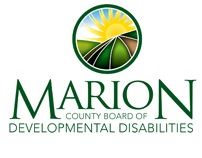

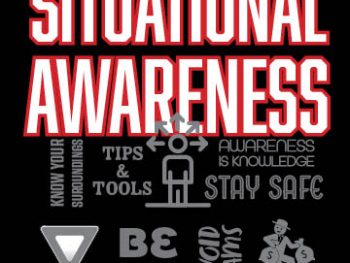



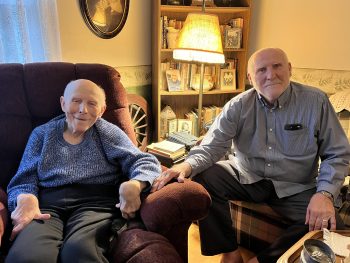

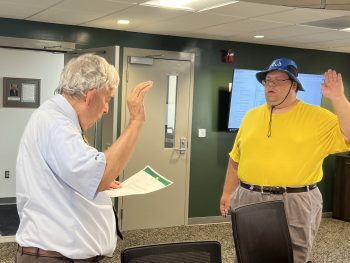

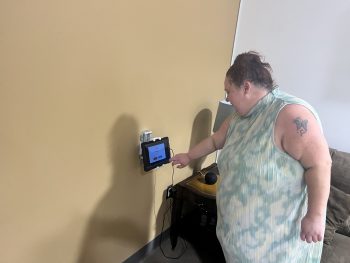
 Local Girl Benefits from Board of Developmental Disability services, Horse Therapy
Local Girl Benefits from Board of Developmental Disability services, Horse Therapy